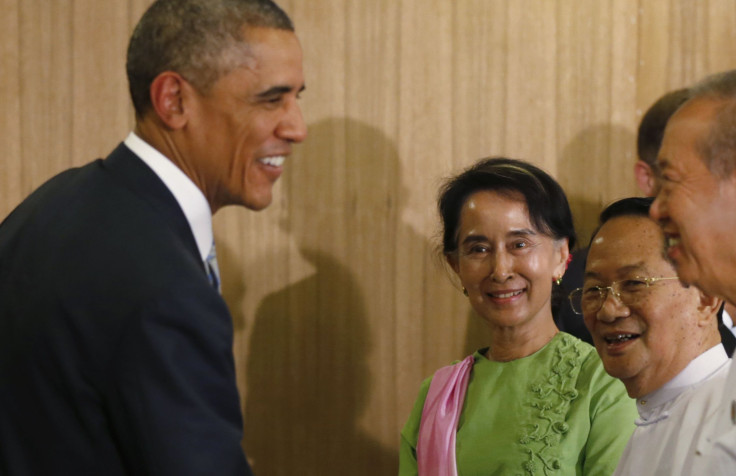Obama in Myanmar: President 'Confident' It Will Stop 'Backslide'

After meeting with Burmese lawmakers, U.S. President Barack Obama said Thursday he is optimistic that Myanmar will be able to avoid a “backslide” in social and political progress. Just hours before he touched down in the southeast Asian country Wednesday, Obama had said he was concerned about the treatment of the Rohingya Muslim minority, which are subject to ethnically charged violence and persecution in what is supposed to be a progressive time for Myanmar following nearly 50 years of military rule. Thousands of Rohingya have fled the country because of violence and persecution.
“I'm confident there will be a completely new day for Myanmar,” Obama told reporters after meeting lawmakers. “The work is not done here.” Obama went on to say he had an “excellent discussion” with them about the democratic transition being made, but added that they discussed “pushing further to institute a genuine democracy here in this country that can serve the needs of all of its people.”
While Myanmar is open to the rest of the world for the first time in years, the military still holds a quarter of the seats in parliament, which means it can veto constitutional amendment, according to Reuters. Nobel Peace Prize laureate Aung San Suu Kyi, a pro-democracy advocate who was released in 2010 after 15 years under house arrest, is currently barred from participating in Myanmar’s 2015 presidential elections.
“It’s a very fluid situation right now inside of Burma,” said Ben Rhodes, Obama’s deputy national security advisor, just prior to Obama and Thein Sein’s meeting on Thursday. “We have significant concerns that there has to be further follow-through.”
Obama became the first serving U.S. president to visit Myanmar, in 2012, following landmark elections and an easing of harsh military rule. Burmese President Thein Sein was the first of Myanmar’s presidents to visit the White House in 47 years when he came to the U.S. in 2013. Obama's engagement with Burma is part of a bid to establish an American presence in what they hope will be southeast Asia's latest democracy.
© Copyright IBTimes 2024. All rights reserved.






















